Despite the fact that cryptocurrencies appeared about 10 years ago, their legal status has not yet been determined. In particular, legislators have not yet decided what is meant by a digital coin - an asset, property or something else, so because of this, legal conflicts arise regarding whether to allow transactions involving cryptocurrencies. Such problems have not yet been completely resolved, however, cryptocurrencies have been successfully traded on cryptocurrency exchanges for many years, and Bitcoin derivatives have entered financial exchanges. Moreover, in a number of countries, local regulators have developed legislation that regulates transactions with digital money, and some banks have launched their own cryptocurrencies.
However, despite the above, understanding of the principles and features of digital money varies depending on the country. For example, French, German and Australian authorities have made three different interpretations of the essence of Bitcoin, and some said that it is a currency, while others said that it is a financial instrument and a security. At the same time, the methods of taxation of transactions with cryptocurrencies, the rules of regulation and the nature of the reporting provided depend on the terminology used. For example, regulators interfere less in the activities of the commodity market compared to the financial market, and more stringent requirements are introduced for securities issuers in terms of trading reporting, price transparency and other criteria.
Why is there no common terminology?
As noted earlier, there are several interpretations of what is meant by the word cryptocurrency, and experts give different arguments in favor of the proposed terms.
Bitcoin is a currency
Even the creator of BTC (Satoshi Nakamoto) stated that this crypto coin is a currency and most experts agree with this opinion, which is supported by the fact that digital coins are used as a means of payment. Cryptocurrency, for example, is accepted today on sites such as the Microsoft Store and Amazon.
Cryptocurrencies also have properties characteristic of ordinary money:
- medium of exchange and store of value;
- a tool in which calculations can be made;
- interchangeability;
- divisibility;
- portability;
- transferability;
- scarcity.
However, cryptocurrencies are not identical to fiat (real) money and this is explained by the peculiarities of the technology on which cryptocurrencies are based. Fiat money is backed by the Central Bank, which is its issuer, and no one is responsible for cryptocurrencies.
In addition, the exchange rate of cryptocurrencies is subject to significant fluctuations, which means that it is inconvenient for sellers to set prices for goods and services, for example, in Bitcoin, since they will have to constantly change.
Also, the disadvantages of some cryptocoins, due to which virtual money cannot be identified with real money, include an unfamiliar and inconvenient interface, which makes transactions with cryptocurrencies inconvenient.
In addition, it should be noted that the issue of the same Bitcoin requires a lot of electricity and time, and the size of the issue of this coin is limited to 21 million coins, so cryptocurrencies have not become widespread as a unit of account.
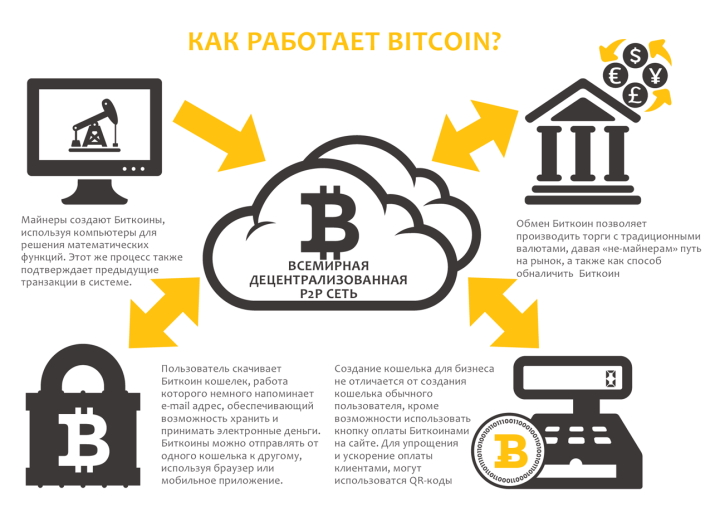
Bitcoin is a commodity
This point of view is also popular and the fact is that Bitcoin can be perceived as a commodity due to the fact that any cryptocurrency:
- has a price;
- interchangeable;
- Suitable for trading on the market.
One of the economists equated BTC to a commodity only because it “has no obligations,” which means that the cryptocurrency can be identified with oil or gold and each of these assets is traded on world exchanges. Derivative instruments (futures) were also created on them, and the American Commodity Futures Trading Commission defined Bitcoin as a commodity back in 2015, thanks to which a derivative for this asset appeared on US exchanges.
But if you look at it from the other side, then it is impossible to identify cryptocurrencies and goods 100%. This is explained by the fact that the latter has a consumer value, and for example, oil is used in the production of gasoline, while BTC and other cryptocurrencies are not used anywhere. In addition, cryptocoins do not have a physical embodiment, and the only thing that Bitcoin has in common with a product is the presence of a price.
Bitcoin is a security
Cryptocurrencies are also often considered as a financial instrument, which, if we follow the broad definition of this concept, provides the right to trade tangible or intangible assets.
This judgment is supported by the characteristics of digital coins. Cryptocurrencies are inherently negotiable financial instruments that have a certain value, and tokens and security-tokens meet the criteria of securities, since they are issued by one company as part of an ICO, and they function on the basis of the same principles as shares. This opinion is typical for many regulators of financial markets, therefore, companies that conduct ICOs are subject to the same requirements as for shares.
 However, securities are an asset that generates income, that is, by buying a share, a person acquires a stake in the issuing company, while cryptocurrencies do not guarantee that their owner will receive a constant income and investors invest in cryptocoins only for the purpose of further resale.
However, securities are an asset that generates income, that is, by buying a share, a person acquires a stake in the issuing company, while cryptocurrencies do not guarantee that their owner will receive a constant income and investors invest in cryptocoins only for the purpose of further resale.
Cryptocurrencies cannot be called securities also because they do not have a single issuer, but are obtained through mining, which means that regulators cannot oblige one company to comply with certain rules. This was also voiced by the American Securities Commission (SEC), noting that income from cryptocurrencies does not depend on the activities of the management of the issuing company, as is the case with shares.
Bitcoin is property and digital rights
If the above terms cannot be applied to cryptocurrencies, then cryptocoins can be clearly defined as property. This opinion was expressed by both representatives of the American tax authorities and the Russian court, and in 2018 a ruling was made that Bitcoin is not an electronic means of payment in Russia. This judgment is supported by the fact that the owner of a cryptocurrency cannot contact its issuer.
At the same time, digital coins can be classified as an object of civil rights, since they:
- capable of isolation;
- have property value that is recognized as turnover;
- act as the subject of obligations.
This judgment contradicts the laws of some countries (in particular, the UK, where intangible assets are not recognized as property).
USA
 In the United States, there is no consensus on the essence of cryptocurrencies and individual states pass their own laws that regulate activities in the cryptocurrency market. There is no consensus among the federal authorities, which also have a direct influence on the functioning of this segment.
In the United States, there is no consensus on the essence of cryptocurrencies and individual states pass their own laws that regulate activities in the cryptocurrency market. There is no consensus among the federal authorities, which also have a direct influence on the functioning of this segment.
Thus, the body responsible for combating crimes in the financial sector does not recognize digital coins as a means of payment, but since 2013 this organization has defined cryptocurrency exchanges as operators providing financial services. Since the same year, the organization has considered tokens as assets that can replace currency, and therefore exchanges that trade cryptocurrencies must comply with bank secrecy requirements and adhere to FATF recommendations.
The US Internal Revenue Service considers digital coins to be property and, based on this judgment, has issued recommendations regarding the calculation of taxes on profits received in the course of trading digital coins.
The securities regulator considers Bitcoin and altcoins to be securities, while the commodity regulator views cryptocoins as a commodity and considers itself the regulator of exchanges that trade BTC derivatives.
Due to the lack of unity on this issue, this makes it difficult for American regulators to decide who should control the cryptocurrency market.
Canada
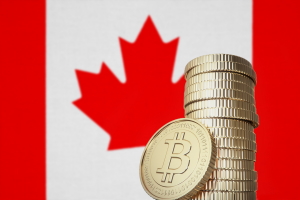 In Canada, a similar situation has developed where the local tax authority (CRA) defines Bitcoin and altcoins as a commodity, but trading digital coins in Canada is considered a barter transaction. Income in this case is defined as profit received from doing business, that is, the tax base is calculated specifically on profit.
In Canada, a similar situation has developed where the local tax authority (CRA) defines Bitcoin and altcoins as a commodity, but trading digital coins in Canada is considered a barter transaction. Income in this case is defined as profit received from doing business, that is, the tax base is calculated specifically on profit.
But the Canadian Central Bank, together with the local securities regulator (CSA), define cryptocurrencies as securities, while exchanges operate in accordance with FAFT requirements and must register with a local organization involved in combating financial crimes.
European Union
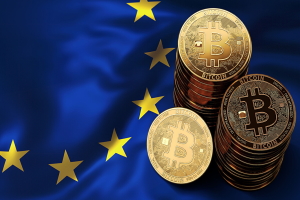 EU legislation allows transactions with cryptocurrency, but the procedure and rules for regulating this activity vary greatly depending on the state that is part of the EU.
EU legislation allows transactions with cryptocurrency, but the procedure and rules for regulating this activity vary greatly depending on the state that is part of the EU.
When determining the size of the tax base, many countries are guided by the decision of the European Union Court, which ruled that when exchanging digital coins, their holder is exempt from paying VAT, and the tax is calculated on the amount he received through the purchase/sale transaction.
Gradually, all countries that are part of the EU are moving to the cryptocurrency market regulations proposed by FAFT, according to which local exchanges must transfer the data of users making transactions to the regulator. In addition, sites are required to report information about their clients and their cryptocurrency wallets to the relevant regulatory authorities in order to stop money laundering, which means that EU countries are gradually tightening the rules for the operation of the cryptocurrency market.
Malta
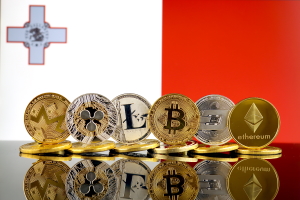 Malta stands out from other countries with its relatively liberal legislation. Local regulations establish the status of cryptocurrencies as a medium of exchange, a unit of account, and a store of value. A similar definition applies to regular money, but Maltese legislation does not impose VAT on exchange transactions between fiat money and cryptocurrencies. This means that digital coins are not actually recognized as currency and Maltese regulators define cryptocurrency as a virtual asset.
Malta stands out from other countries with its relatively liberal legislation. Local regulations establish the status of cryptocurrencies as a medium of exchange, a unit of account, and a store of value. A similar definition applies to regular money, but Maltese legislation does not impose VAT on exchange transactions between fiat money and cryptocurrencies. This means that digital coins are not actually recognized as currency and Maltese regulators define cryptocurrency as a virtual asset.
France
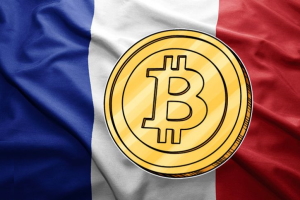 In France, there is currently no consensus on how to regulate transactions with digital coins, and therefore there is no legislation in the country that determines the procedure for conducting such transactions. However, Bitcoin, like altcoins, is not officially banned in France and over 25 thousand retail outlets in the country are ready to accept digital coins as payment for products. The only problem is that the lack of legislative regulation of transactions with virtual money leads to the fact that the owners of such companies are forced to take on all the risks associated with transactions. A number of French politicians have previously expressed the view that BTC should not be treated as a currency, but local legislation follows the rule adopted in Europe and does not impose VAT on exchange transactions between cryptocurrencies and fiat money.
In France, there is currently no consensus on how to regulate transactions with digital coins, and therefore there is no legislation in the country that determines the procedure for conducting such transactions. However, Bitcoin, like altcoins, is not officially banned in France and over 25 thousand retail outlets in the country are ready to accept digital coins as payment for products. The only problem is that the lack of legislative regulation of transactions with virtual money leads to the fact that the owners of such companies are forced to take on all the risks associated with transactions. A number of French politicians have previously expressed the view that BTC should not be treated as a currency, but local legislation follows the rule adopted in Europe and does not impose VAT on exchange transactions between cryptocurrencies and fiat money.
Despite the above, French courts have a different opinion regarding digital coins and the arbitration court of the city of Nanterre recognized Bitcoin as a currency. The published resolution states that this coin is an interchangeable intangible asset and, based on the above judgment, the court decided to consider Bitcoin as one of the currency options. It should be understood that in France there is no case law and all previously issued decisions are only taken into account by other courts. This decision was made as part of the proceedings between the Paymium cryptocurrency exchange and the investment company BitSpread. The first took a loan from the second in the amount of 1,000 BTC, but a few years later there was a hard fork of this cryptocurrency, as a result of which Bitcoin Cash appeared, and according to the rules of that procedure, all Bitcoin holders should receive the same amount of BCH. But Paymium, which provided the exchange with a loan in the form of BTC, decided that it was the final recipient of 1,000 Bitcoin Cash coins. The court, having considered the parties’ application, decided that Bitcoin, like real money, is a fungible currency, and attention was drawn to the fact that borrowers have the right to keep all income received with the help of borrowed funds for themselves. That is, in this case, the court chose the side of BitSpread, ruling that the exchange may not give Paymium 1,000 Bitcoin Cash coins, but is obliged to return borrowed funds in the amount of 1,000 BTC.
Germany
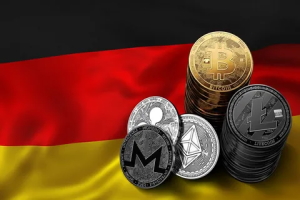 The German Federal Financial Supervisory Authority (BaFin) defines cryptocurrencies as a financial instrument. This means that every company involved in cryptocurrency transactions (exchanges or issuers) is required to license its activities with BaFin. Tokens issued as part of the ICO are considered by the local regulator as an analogue of securities, that is, both assets are controlled equally. Probably in connection with this, the German authorities decided to allow banks and other financial institutions to carry out transactions for the purchase/sale of cryptocoins on behalf of their clients.
The German Federal Financial Supervisory Authority (BaFin) defines cryptocurrencies as a financial instrument. This means that every company involved in cryptocurrency transactions (exchanges or issuers) is required to license its activities with BaFin. Tokens issued as part of the ICO are considered by the local regulator as an analogue of securities, that is, both assets are controlled equally. Probably in connection with this, the German authorities decided to allow banks and other financial institutions to carry out transactions for the purchase/sale of cryptocoins on behalf of their clients.
BaFin has defined cryptocurrencies as a financial instrument because this asset has the following properties:
- the Central Bank is not involved in issuing cryptocurrency;
- cryptocurrencies are not backed by the Central Bank or government agencies;
- digital coins do not have legal status like currencies or money;
- virtual money is not a means of payment;
- cryptocurrencies act as one of the objects for investment;
- Digital coins can be stored, transferred or traded electronically.
BaFin has adopted such a broad definition because it allows for the diversity of existing and future cryptocurrencies and other similar assets that are not considered units of account. At the same time, the regulator emphasized that digital coins cannot be identified with electronic money, therefore different legal norms apply to both assets.
The German Tax Service believes that all transactions with cryptocurrencies should be subject to VAT, and the tax base is calculated based on the amount of income received from such transactions. However, there is an exception to this rule - German law allows you not to pay taxes when making your first transaction with cryptocurrencies. The same rule applies to cases of sale of cryptocurrencies within a year after purchase, provided that the income from this transaction does not exceed 600 euros.
Great Britain
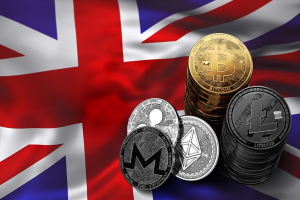 In the UK, like in a number of other European countries, there are no laws that regulate transactions with cryptocurrencies, but digital coins are not prohibited here. All cryptocurrency exchanges are required to obtain a license from the Financial Conduct Authority.
In the UK, like in a number of other European countries, there are no laws that regulate transactions with cryptocurrencies, but digital coins are not prohibited here. All cryptocurrency exchanges are required to obtain a license from the Financial Conduct Authority.
The local tax authority defines digital coins as a unique asset that cannot be identified with investment instruments or means of payment, and transactions with cryptocurrencies are subject to income tax.
Switzerland
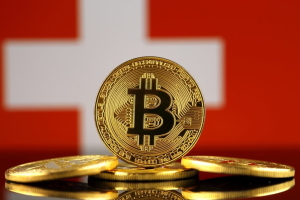 Swiss law has definitions of the terms “cryptocurrency”. Moreover, local authorities have progressive views on the development of this area of the world economy.
Swiss law has definitions of the terms “cryptocurrency”. Moreover, local authorities have progressive views on the development of this area of the world economy.
The Swiss tax office defines virtual money as an asset, so holders are required to declare the amount of cryptocurrencies they own on their annual tax return, and are also subject to a wealth tax.
Cryptocurrency exchanges, as companies conducting ICOs, must license their activities with the Swiss Financial Market Supervisory Authority (FINMA).
Estonia
 Estonian authorities define cryptocurrencies as a type of digital asset, but virtual money cannot be used within the country as a means of payment.
Estonian authorities define cryptocurrencies as a type of digital asset, but virtual money cannot be used within the country as a means of payment.
The activities of cryptocurrency exchanges in Estonia are also licensed, and such sites must be registered simultaneously with the authorities that regulate the activities of virtual currency exchange operators and digital money wallets.
Russia
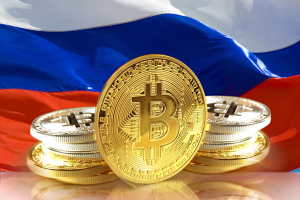 Russian authorities have so far avoided issues related to the definition of “cryptocurrency,” but courts periodically have to deal with cases that directly relate to transactions with digital coins. Thus, the Ninth Arbitration Court of Appeal recognized cryptocurrency as other property, and later a similar decision was made in other cases.
Russian authorities have so far avoided issues related to the definition of “cryptocurrency,” but courts periodically have to deal with cases that directly relate to transactions with digital coins. Thus, the Ninth Arbitration Court of Appeal recognized cryptocurrency as other property, and later a similar decision was made in other cases.
If you follow the above statement, it turns out that cryptocurrency, like other property, can be sold, bought and exchanged. Also, courts have the right to collect debts in the form of digital coins, while property deductions in Russia do not apply to cryptocurrencies. Moreover, in one of the bills, virtual money is defined as digital rights, that is, if you follow this norm, in Russia cryptocurrency is understood as one of the types of securities.
Ukraine
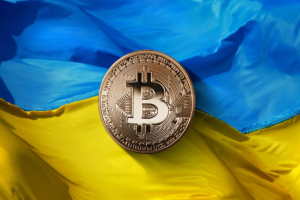 Ukrainian legislation prohibits the classification of cryptocurrencies as:
Ukrainian legislation prohibits the classification of cryptocurrencies as:
- money;
- foreign currency;
- instrument of payment;
- electronic money;
- money surrogate;
- security.
But Ukrainian legislation does not have a clear definition of what is meant by cryptocurrencies. However, since 2019, the Verkhovna Rada adopted a resolution according to which when conducting transactions with digital coins it is necessary to operate with FATF recommendations. Later, a decision was made that defines cryptocurrencies as one of the types of intangible assets, so holders of digital coins must indicate them in the declaration along with objects of intellectual property. In addition, Ukrainian regulatory authorities are now monitoring transactions carried out with cryptocurrencies in an amount equivalent to $1,200 and above.
China
 For many years, cryptocurrencies were banned in China, but in 2019 the situation changed when a local court recognized Bitcoin as a type of digital property.
For many years, cryptocurrencies were banned in China, but in 2019 the situation changed when a local court recognized Bitcoin as a type of digital property.
Later, the country’s leadership called for strengthening the development of blockchain technology, and the National Bank of China announced that it plans to launch its own cryptocurrency.
Singapore
 The Singapore authorities welcome the development of cryptocurrencies and several large exchanges operate legally in this country.
The Singapore authorities welcome the development of cryptocurrencies and several large exchanges operate legally in this country.
The local tax authority defines cryptocoins as a commodity, and therefore the asset is subject to VAT.
The activities of cryptocurrency exchanges are regulated by the Monetary Authority, which applies existing legislative norms to such platforms.
Japan
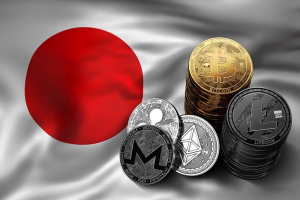 Japanese law defines cryptocoins as property, so virtual money is subject to tax on sales proceeds at rates ranging from 15% to 55%.
Japanese law defines cryptocoins as property, so virtual money is subject to tax on sales proceeds at rates ranging from 15% to 55%.
The activities of cryptocurrency exchanges in Japan are licensed, however, despite the liberal attitude of local authorities towards digital coins, the management of such assets has recently become more strictly regulated.
South Korea
 South Korean authorities do not prohibit transactions with digital coins, and local authorities closely monitor such transactions. South Korea allows cryptocurrency trading only if people conduct such transactions using accounts opened with banks. In this regard, all exchanges here are required to enter into agreements with credit institutions.
South Korean authorities do not prohibit transactions with digital coins, and local authorities closely monitor such transactions. South Korea allows cryptocurrency trading only if people conduct such transactions using accounts opened with banks. In this regard, all exchanges here are required to enter into agreements with credit institutions.
South Korean legislation has not yet established the legal term “cryptocurrency,” but it does contain regulations prohibiting trading in Bitcoin derivatives.
On the plus side, it can be noted that at the moment in South Korea, income received from the sale of cryptocoins is not taxed, but this situation may change.
Australia
 The Australian government sees blockchain as one of the opportunities for developing its own economy, so it has adopted a roadmap for integrating this technology into the financial sector.
The Australian government sees blockchain as one of the opportunities for developing its own economy, so it has adopted a roadmap for integrating this technology into the financial sector.
Digital coins are treated as property in Australia and subject to income taxes.
Cryptocurrency exchanges are required to be licensed by a local regulator and comply with a number of rules, one of which is the transfer of customer information to the relevant authorities.
Also, the attitude of the Australian government towards digital coins is shown by one of the trials that was considered in 2017. The plaintiff, with the consent of the lawyer, used money from the cryptocurrency wallet to cover costs, which does not contradict Australian law.
Latin America
On the territory of the Latin American continent, as in many countries of the world, they have not come to a common point of view regarding the methods and nature of regulating transactions with cryptocurrencies.
Thus, Ecuadorian and Bolivian authorities have banned any transactions carried out using cryptocurrencies.
The leadership of other Latin American countries has more liberal views, and in Brazil, for example, cryptocoins are defined as assets that should be subject to income tax.
Other definitions of digital coins have been adopted on the territory of this continent:
- Mexico – virtual assets;
- Venezuela – financial assets;
- Colombia is a high risk investment;
- Argentina - goods or an analogue of securities (this point of view is shared by the tax department).
The activities of cryptocurrency exchanges in Latin American countries are not regulated, but in Mexico such sites are required to register, and the local Central Bank limits the circulation of digital coins.
Conclusion
Cryptocurrencies are a difficult asset to understand, as a result of which many countries have not yet been able to decide what it should mean, which is why local regulators have not yet compiled a list of rules within which transactions with digital coins must be carried out. However, the point of view on cryptocurrencies is gradually changing and more and more regulators are coming to understand that digital coins are a new, alternative type of asset with its own characteristics. Therefore, in the future, most likely, we can expect a large-scale classification of cryptocurrencies depending on their properties and purpose.
See also:



To leave a comment, you must register or log in to your account.